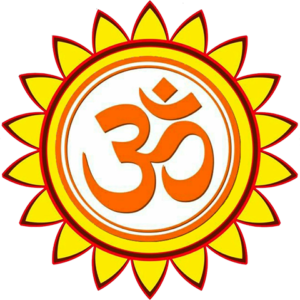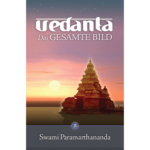I visited India for the first time in 1969. Although it has since become a cliché, it would be fair to say that on...

For those who are encountering Vedanta for the first time and may be wondering what it’s all about, this collection of courses and articles will serve as a valuable introduction to this time tested wisdom.
Beginning with the Vedanta Foundation Course, these materials will give you—in plain and modern English—everything you need to become familiar with Vedanta, and prepare you to study the scriptures in depth, if necessary.
Introducing the Science of Vedanta
Trusting a Pathless Path
When practiced with dedication and devotion, many methods can relieve us of a sense of limitation and inadequacy and genuinely improve the quality of our experience of life. Meditation, mindfulness, experience-oriented gurus, the eightfold path of ashtanga yoga, nutrition, selfless service, bodywork modalities, plant medicine, New Age practices, native ritual, psychedelic therapies and many more, for example. These transformative endeavors do increase happiness in direct proportion to the depth of one’s commitment to them.
But sadly, the removal of inadequacy and dissatisfaction only engenders a temporary “sense” of freedom. To keep oneself happy one needs to maintain constant vigilance, increase one’s dedication and/or constantly seek new practices. Is freedom gained by action actually free then?
What if the self whose life we are seeking to improve is whole and complete and immune to the ravages of time? What if the feeling of limitation and incompleteness that seems to dog me throughout my life doesn’t belong to me? What if I am born free but don’t know it?
Vedanta is a means of self knowledge that proves beyond a shadow of a doubt that the freedom that I seek is my innermost nature, relieving me of the burden of continually having to reproduce a sense of transient freedom through repetitive and tiresome actions. It establishes the identity of our seemingly limited self as identical with the eternal self, existence shining as blissful consciousness, that is the basis of life itself. If this sounds like another one of the impermanent modalities listed above, the difference lies in a few characteristics that may not be obvious at first glance:
- Vedanta contends that you are whole and complete, indivisible, immortal fullness, shining as your own ordinary ever-present consciousness.
- It is a time tested, scripture-based means of self-knowledge. It has been setting people free since it was revealed thousands of years ago.
- It is a compassionate philosophy because it doesn’t expect us to immediately accept its counterintuitive point of view (our identity as eternal existence/consciousness) but provisionally accepts our status as individuals allowing us to gradually grow to our full potential as spiritual beings. Rather than denying the reality of ignorance, it scientifically and patiently eliminates the existential doubts which cause inner conflict that seemingly hides self-knowledge.
- It is a pathless path. Unlike other traditions, once Vedanta has done its job and liberated us from incorrect notions about our true nature, it discards itself, like one discards a thorn that removes a thorn, leaving us to experiences reality purely and simply as it is.
- It does not make you more conscious but seems to do so as it surgically carves away erroneous notions about who you are, leaving you more and more confident in your real identity.
- Vedanta neither demands belief nor proclaims itself to be the only way. Rather, it only requires a temporary suspension of disbelief so you can listen and contemplate its logic, pending confirmation in your OWN experience.
These courses exist because freedom and perfect contentment IS possible. They bridge the gap that seems to exist between the knowledge of what you truly are and the “reality“ of your identity as an insecure person in a binary, vast, complex, ever-changing matrix of factors that is impossible to control.
We do not say that this investigation into one’s self is not a challenging paradox. Unwanted thoughts and emotions, habits, jobs, bills and loved ones will not miraculously disappear once your knowledge of who you really are is firm. A defanged snake is still a snake. But looking at one’s small self from beyond it makes the journey to the freedom that we are workable, and enjoyable.
– Shining World
PS: Before you begin, and especially if you have studied or spent time with experience-based “Advaita” or Non-dual gurus, it is necessary to review the two articles explaining what traditional Vedanta is – and what it isn’t – found at the top of our resources page.

Make no mistake, while this course is for beginners encountering Vedanta for the first time, it does not leave out any part of the teaching. Before the teaching can be assimilated and conditioned biases eliminated, it needs to be properly understood. The materials in this course alone can produce the knowledge that sets a well-qualified person free from his or her sense of incompleteness and inadequacy.

Ignorance of who we are is hard wired and doesn’t necessarily disappear immediately. After mastering the Foundation Course, you are now ready to refine your understanding and add additional tools to root out deep seated subconscious obstacles to the actualization of your self knowledge by undertaking a systematic inquiry into the scriptures themselves.

This 14 part Vedanta course is based on James Swartz’s book, The Essence of Enlightenment. Meant to be carefully studied over the course of a year, the book materials are followed by questions and answers to assure you have correctly assimilated the knowledge.
Introductory Articles
By Sundari Though it is not essential to self-inquiry, it really helps to understand some of the history of Vedanta and its scriptural texts...
What are we looking for? Contributed by Ben When we examine all our needs and wants, we arrive at a very simple conclusion. Through...
Once you have developed a firm understanding of Vedanta by completing the Beginners Course, you are ready to undertake a systematic study of the...
What is Vedanta? That’s a question I get asked a lot. The answer I give generally depends on who is asking the question. For...
















